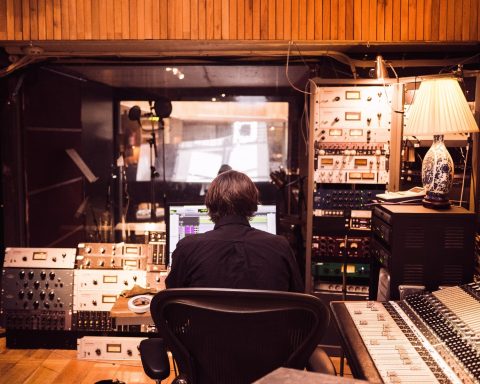Music can liven up a traffic-filled drive home or make for a memorable night on the dance floor with friends and family. People go to concerts, recitals, or musicals to take in mesmerizing blends of dancing, singing, and acting. For years, different cultures have integrated music or musical elements in prayer, work, and matrimonial ceremonies. This music can be used as a type of entertainment, but it can also be a form of therapy.
Along with yoga, guided meditation, and art therapy, music therapy is one of many holistic approaches that can treat physical and mental health issues, such as alcohol abuse, anxiety, or depression.
Music therapy utilizes creating, singing, moving, or listening to music as a form of treatment. Many find music therapy allows them to express themselves in ways other types of communication don’t. It can also provide physical rehabilitation through movement.
There are many types of music therapy. Below we’ll explore some of these forms and how to apply them.
What Is Music Therapy?
Music therapy is a therapeutic technique that uses sound and rhythm to engage, inspire, uplift, and rehabilitate a patient. It can be an active experience (the patient creates, dances to, sings, or hums music) or a passive experience (the patient listens or responds to music).
There are people specifically trained in this form of therapy. Those who want to teach music therapy techniques for holistic purposes must complete music therapy school, gain board certification, and follow state-specific requirements to practice. Their goal is to determine which method of music therapy is appropriate for a patient. They may use a combination of techniques to achieve the best results.
Common Types of Music Therapy
Several forms of music therapy have been developed over the years. Each method encourages the patient to engage with music on some level. You don’t need a musical background to participate in any of these methods. But for best results, you should work with a music therapist.
Types of music therapy are:
- Analytical music therapy: Encourages an improvised dialogue by playing an instrument or singing to let out unconscious thoughts, which you can then discuss with your therapist.
- Benenzon music therapy: Combines psychoanalysis and music making. Asks patients to search for a musical sound identity by finding sounds that match their internal mental state.
- Cognitive behavioral music therapy (CBMT): CBMT uses concepts from cognitive behavioral therapy and meshes them with music. Music is used as a way to describe and change behaviors. This can involve either listening to or actively engaging in music.
- Community music therapy: Focuses on music creating community change. Done in a group setting and requires some form of engagement from each member.
- The Bonny method of guided imagery and music (GIM): Utilizes classical music to stimulate the imagination. This is a passive experience, where the patient explains sensations, memories, imagery, and feelings that classical music conjures.
- Vocal psychotherapy: The patient uses vocal exercises, natural sounds, and breathing techniques to connect with their psychological mindset.
A patient’s first session with a musical therapist will involve laying out overall goals. After establishing objectives, a patient may be asked to tap into their emotions when working with music. Some techniques focus on revealing repressed feelings, while other methods work on changing how you feel.
What Does Music Therapy Treat?
Holistic music therapy treats many mental health disorders as well as physical diseases. Some people use music therapy in conjunction with other treatments, while others use it as their main source of rehabilitation.
Music therapy treats:
- depression
- anxiety disorders
- post-traumatic stress disorder
- dementia
- autism
- different forms of cancer
- chronic pain
- headaches
- substance use disorders
- traumatic brain injury
There are several benefits of music therapy on both the mind and body.
These include:
- improved sleep
- lowered risk of stroke and coronary artery disease
- lowered cholesterol levels
- lowered blood pressure
- balanced mood swings
- drops in stress
Starting Music Therapy
Starting a new form of therapy can be uncomfortable. You may want to go on YouTube and find some tutorials. However, a professional introduction with an instructor may make your first experience more fulfilling. However you approach it, just remember that open-mindedness is key when starting something new.














